-
Dangers of an Overloaded Circuit
Dangers of an Overloaded Circuit
Have you ever noticed your lights flickering or your circuit breaker tripping unexpectedly? These could be signs of an overloaded circuit, a common but often overlooked issue that can lead to serious problems. At Delta Electric, we’re here to make electrical safety easy to understand and manage. Today we’ll explore what causes overloaded circuits, why they’re dangerous, and how you can keep your home or business running smoothly and safely. With a little knowledge and the right support, protecting your property from electrical hazards is simpler than you think.
What is an Overloaded Circuit?
An overloaded circuit occurs when the electrical demand placed on a circuit exceeds its designed capacity. This happens when too many devices or appliances draw power from the same circuit, causing the wiring to overheat. Overloaded circuits can lead to significant issues, including tripped circuit breakers, damaged wiring, or even electrical fires. Knowing the signs of an overloaded circuit and addressing them promptly can prevent these problems from escalating.
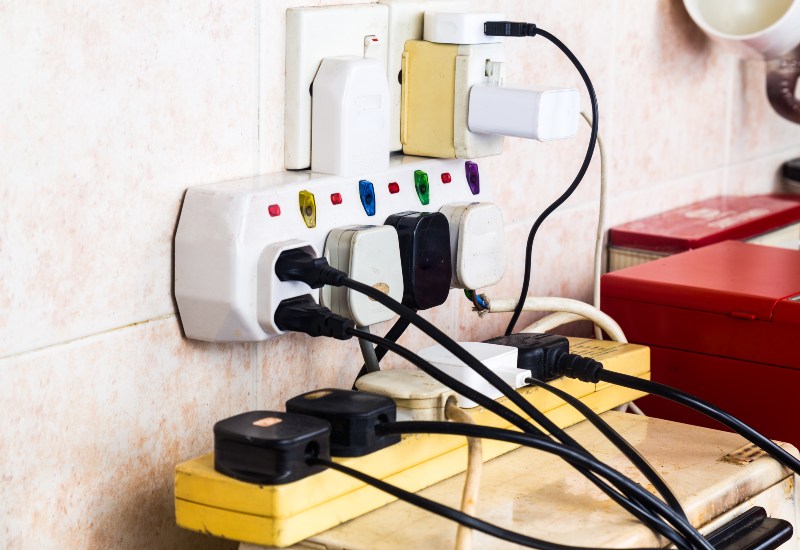
Dangers of an Overloaded Circuit
The dangers associated with overloaded circuits are numerous and potentially severe. One of the most alarming risks is the possibility of electrical fires. When wires overheat due to excessive demand, they can ignite, posing a serious threat to your home or business. Additionally, overloaded circuits can damage sensitive electronics and appliances, often rendering them unusable or requiring costly repairs. Faulty wiring caused by overloading also increases the risk of electrical shocks, which can cause injury. Furthermore, circuit overloads can lead to power outages, leaving parts of your property without electricity and disrupting your daily routine or business operations.
Recognizing the Signs of an Overloaded Circuit
It is important to recognize the warning signs of an overloaded circuit to address the issue before it becomes a major hazard. Some common indicators include flickering or dimming lights, which occur when the circuit struggles to provide consistent power. Circuit breakers that trip frequently or fuses that blow often are another red flag, signaling that the electrical demand is too high for the circuit to handle. Buzzing sounds near outlets or switches, as well as warm or discolored outlets, are additional warning signs. In more severe cases, you may notice a burning smell emanating from electrical outlets or devices, which requires immediate attention.
How to Check for a Circuit Overload
Checking for a circuit overload involves a systematic approach to identifying the problem. Start by locating your electrical panel and identifying the specific circuit breaker that trips frequently. Once you’ve pinpointed the affected circuit, unplug all devices connected to it and take note of their wattage. Compare the total wattage of these devices to the circuit’s capacity, which is typically 15 or 20 amps. If the total wattage exceeds the circuit’s capacity, you’ve identified an overload. To confirm, you can plug devices back in one at a time while monitoring the circuit’s behavior.
Issues Caused by Circuit Overloads
The issues caused by circuit overloads extend beyond immediate inconveniences. Repeated overloading can wear out circuit breakers, reducing their effectiveness and increasing the likelihood of future problems. The excessive heat generated by overloaded circuits can melt or damage the insulation around wiring, creating additional fire hazards. Appliances and electronics connected to an overloaded circuit may also malfunction more frequently, leading to expensive repairs or replacements. These issues underscore the importance of addressing circuit overloads promptly and thoroughly.

How to Prevent Overloaded Circuits
Preventing overloaded circuits is an achievable goal with the right strategies. One of the most effective methods is to distribute electrical loads evenly across circuits, avoiding the use of multiple high-wattage devices on the same outlet or circuit. Having dedicated circuits for major appliances is an important strategy for preventing circuit overload. These kinds of appliances include refrigerators, electric stoves, electric ovens, air conditioners, electric furnaces, washers and dryers, and sump pumps. Upgrading your electrical panel can also help, especially if your property’s electrical system is outdated and unable to meet modern energy demands. Using high-quality surge protectors can manage sudden electrical surges and reduce the risk of overloading. Finally, scheduling regular inspections with a professional electrician ensures that your electrical system remains in good condition and capable of handling your energy needs.
Contact Delta Electric for Overloaded Circuit Solutions
If you’re dealing with an overloaded circuit or have concerns about your electrical system, Delta Electric is here to help. Our team of skilled electricians specializes in diagnosing and resolving issues related to overloaded circuits, ensuring your property remains safe and functional. Whether you’re looking for advice on how to fix an overloaded circuit or need professional intervention to address a persistent problem, we have the expertise to provide effective solutions.
Let’s Keep Your Property Safe!
Don’t let an overloaded circuit jeopardize your safety or disrupt your life. Contact Delta Electric today to learn more about our services. You can fill out our contact form or call us to speak with a member of our professional team. Let us help you maintain a safe and efficient electrical system that meets all your needs.
-
An Introduction to Electrical Hazards
Introduction to Electrical Hazards
In our modern world, electricity is a fundamental part of daily life, powering homes, businesses, and industries. However, with its widespread use comes the potential for electrical hazards, which can cause significant harm if not properly managed. Understanding these hazards is important for everyone, from homeowners to industry professionals. In this article, we’ll discuss electrical hazards, how to identify them, and actions to eliminate them.
What are Electrical Hazards?
Electrical hazards are potential sources of injury or damage associated with the use of electricity. They include a wide range of risks, from electric shocks to electrical fires, and can result in severe property damage, injuries, or even fatalities.
Why It’s Important to Know About Electrical Hazards
Awareness of electrical hazards is key to preventing accidents. Understanding the risks associated with electrical systems helps individuals and professionals implement safety measures and practices to protect themselves, others, and their property. This knowledge is particularly critical in workplaces where employees regularly interact with electrical equipment.
Causes of Electrical Hazards
Electrical hazards can stem from a number of sources:
- Faulty Wiring and Equipment – Improper wiring, aging electrical infrastructure, and malfunctioning equipment can lead to dangerous situations.
- Overloading Circuits – Overloading power outlets and circuits can cause overheating and potentially start a fire.
- Lack of Grounding – Inadequately grounded electrical system increases the risk of electric shock.
- Exposure to Water – Electricity and water are a dangerous combination, heightening the risk of electric shock.
- Improper Installation or Maintenance – Electrical systems that are not properly installed or maintained can quickly become hazardous.
What Are Common Electrical Hazards?
There are five main types of electrical hazards:
- Electric Shock – Electric shocks can occur when the human body comes into contact with an electrical energy source.
- Arc Flashes and Blasts – These are intense and sudden releases of electrical energy into the air.
- Electrical Fires – These can be caused by overheated wires, equipment failures, or improper electrical installations.
- Electrocution – In high-voltage situations, fatal electric shocks can occur.
- Power Surges – Unexpected increases in electrical power can damage equipment and pose fire risks.
What Safety Standards Apply to Electrical Hazards?
Several safety standards and guidelines help to mitigate electrical hazards:
- National Electrical Code (NEC) – The NEC offers guideline for safe electrical installation and maintenance.
- Occupational Safety and Health Administration (OSHA) – OSHA sets standards for electrical safety in the workplace.
- International Electromechanical Commission (IEC) – This body provides international standards for electrical technologies and safety.
- Local Building Codes – Most jurisdictions incorporate NEC guidelines and may have additional requirements.
Contact Delta Electric for All of Your Electrical Work
Delta Electric, with its rich history and extensive expertise in electrical safety, is ready to help you to recognize electrical hazards and safely deal with them. Our commitment is to be more than just service providers. We aim to be educators and partners with you to avoid electrical hazards. By choosing Delta Electric, you are not just ensuring the safe operation of your electrical systems, you are also investing in the long-term safety and efficiency of your property.
Our professional team, armed with the latest tools, knowledge, and technology, is dedicated to delivering service that meets the highest standard of quality and safety Whether it’s conducting a routine inspection, offering tailored solutions, or providing emergency services, we are equipped to address all of your electrical needs.
Don’t let electrical hazards put your safety at risk. Reach out to us by completing our contact form or by calling us to speak to a member of our team. Gain the peace of mind that all is well with your electrical system.
Delta Electric is a fully licensed and insured electrical contractor that has served the San Jose, CA, area since 1982. Specializing in a range of services for residential, mobile, and commercial properties, we offer expert solutions for electrical installations and repairs. Our offerings include custom lighting, panel upgrades, remodeling, wiring, safety inspections, grounding, and much more. As a local, family owned and operated business, we pride ourselves on our community connections. We aim to deliver top-notch service, backed up by over three decades of experience in the electrical industry. We provide free estimates, reasonable rates with no hidden fees, 24 hour emergency services, along with a commitment to quality.
For more information about the products and services we provide, or to request service or a free estimate, contact us today via our website or give us a call at 408-495-2031. We look forward to serving you!
-
What Causes Circuit Breakers to Trip?
Tripped circuit breakers are electrical issues that most homeowners face at least once. If you’ve run into this problem with one of your circuit breakers in San Jose , then read on to learn about some of the possible causes.
Purpose of Circuit Breakers
Circuit breakers play an incredibly important role in protecting you, your family, and your property. The purpose of these safety devices is to cut off the flow of the electricity through an electrical circuit when the current running through it gets too high. By doing this, circuit breakers can help protect your property from electrical fires.
Causes of Tripped Circuit Breakers
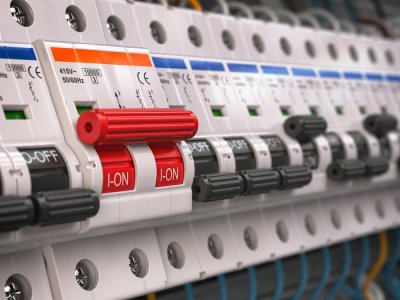
An overloaded circuit is the most common cause of a tripped circuit breaker. In this situation, more electrical load is trying to go through the circuit than is safe, and this problem is caused by plugging in too many devices. As each of the devices is turned on, more and more electrical current runs through the circuit until it exceeds safe levels, causing the breaker to trip. Another common cause of a tripped circuit breaker is a short circuit. One type of short circuit occurs when one of the wires leading to the power plant, called a hot wire, touches another hot wire or the wire leading into the ground, called the neutral wire, which can allow too much current to run through the wire. Short circuits can also be caused by problems like ground faults, faulty wiring installation, damage to an electrical component, or plugging in an improperly wired device.
Troubleshooting a Tripped Circuit Breaker
If one of your circuit breakers trips repeatedly, then start considering what devices you are using. If you have several devices plugged in and drawing power from a single circuit, then unplug all but one of these. After doing this, if the breaker doesn’t trip again, then an overloaded circuit is probably the problem. If unplugging devices doesn’t solve the issue, then you may be dealing with a short circuit and should have an electrician look at your breaker box.
-
Signs That Your Office Should Be Rewired
If your commercial office is more than a decade old, chances are that it may be in need of services from a commercial electrician. Along with checking your breaker box and grounding, your electrician serving San Jose will also be able to determine whether your electrical wiring is in need of an upgrade. By investing in new electrical wiring for your office building, you can help to keep your facility in safe condition for all of your daily operations.
There are a few common signs that your office is ready for rewiring services. With services from a commercial electrician, you can determine whether your existing wiring was installed using materials that are now considered to be outdated. Office buildings that contain aluminum electrical wiring should be renovated with the latest wiring materials. Another sign that your office needs to be rewired is when you start to notice that your current system is not providing enough power to your switches or outlets.
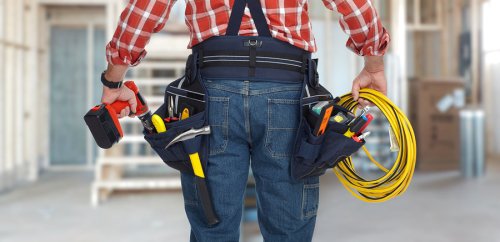
-
Highlighting the Advantages of Dedicated Circuits
When you are gearing up to install new appliances in your home, you may need to hire an electrician to create dedicated circuits on your property. Unlike regular outlets, which are connected to the main circuit breaker of your home, dedicated circuits contain their own electrical panels. With assistance from an electrician serving San Jose, you will be able to determine the right placement for all of the dedicated circuits around your house. Some of the terrific advantages of dedicated circuits include:
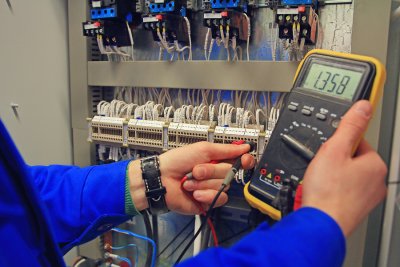
Provide Enough Electrical Current
Major appliances require much more electrical current than smaller devices and lights. If you were to connect your dishwasher or electric range to a conventional electrical outlet, you would quickly overload your home’s electrical system. With a dedicated circuit, you can ensure that your appliance receives enough electrical current, without putting the rest of your electrical outlets at risk of becoming overloaded. Your electrician will set up your dedicated circuit so that is supplies your appliance with the right amount of power at all times.
Prevent Electrical Safety Hazards
Another reason to install dedicated circuits around your property is that these devices will help to prevent dangerous safety issues in your electrical system. In the event that an appliance is hooked up to a standard, rather than dedicated, circuit, it could be at risk of creating an electrical fire in your home. By investing in dedicated circuits, you will have better peace of mind after your new appliance installation is complete.
Comply With National Electric Code
National Electric Code mandates that all major appliances are connected to dedicated circuits. If you neglect to create dedicated circuits before your next appliance installation, you run the risk of violating the National Electric Code and racking up steep fines. The National Electric Code was created to ensure that all residential and commercial properties remain protected from electrical safety hazards. Your electrician can help you to make sure that all of your appliances and outlets are up to safety regulations.
-
A Look at How Energy-Efficient LED Lights Have Changed the World
The inventors of the LED light have recently been awarded with the Nobel Prize in Physics. In this video from Seeker, you will take a look at how LED lighting has changed the world. By providing homeowners and businesses with energy-efficient lighting, LED lights have improved our quality of life. An electrician serving San Jose can help you plan a new LED lighting installation for your home.
After you make the switch to LED hanging lights and recessed lights throughout your household, you are sure to be impressed with the amazing performance of these innovative light bulbs. LED lights are much longer lasting than conventional bulbs, and they can help you to significantly decrease your home’s energy consumption.
-
The Role of Circuit Breakers in Safeguarding Your Home
Your circuit breaker or fuse box is designed to protect your home against electrical surges and overloads. In this video from This Old House, you will take a look at the role that circuit breakers take in safeguarding the home. In order to protect your electrical system from surges, circuit breakers are designed to automatically flip your fuses off. An electrician serving San Jose can make sure that your circuit breaker is functioning properly.
-
Signs You Should Have Your Home’s Electrical Wiring Inspected
As a homeowner, it is your responsibility to make sure that the various systems throughout your property are in safe working condition. If you have started to notice that your light switches or outlets are not functioning correctly, it may be time to hire an electrician serving San Jose to inspect your electrical wiring. A team of electricians can take a look at your fuse box and electrical wires to make sure that they are not damaged or in danger of causing an electrical fire. Read further to learn some of the top signs that you need to have your home’s electrical wiring inspected.
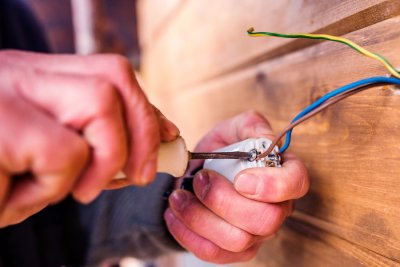
Frequent Circuit Trips
The electrical wiring in your home should supply enough power to run all of your outlets, appliances, and lighting. While an occasional tripped circuit is not cause for serious concern, you may want to call your electrician if you are experiencing trouble with your circuits on a regular basis. Frequent circuit trips could point to faulty wiring somewhere in your home’s electrical system.
Flickering Lights
You may want to have your home’s wiring inspected if you start to notice that your overhead lights are flickering. More than just a mere nuisance, a flickering light source could indicate major problems in your home’s electrical system. A flickering light fixture is often caused by faulty or damaged wiring, which will require professional repairs in order to be returned to safe working condition. When your lights flicker on and off, this is an indication that you are ready for a wiring inspection.
Burning or Foul Odors
If your wiring is seriously damaged and in need of immediate replacement, you may start to smell burning or foul odors coming out of one or more electrical outlet. A burning smell could indicate that your electrical wiring is in danger of starting an electrical fire. By taking the time to have your wiring inspected at the first sign of an electrical problem, you can avoid a serious emergency in your home.
-
The Importance of Periodic Electrical Safety Inspections for Your Building
Periodic electrical safety inspections are essential for any building. When you own a home or business, you will want to hire an electrician serving San Jose to inspect the various aspects of your electrical system at regular intervals. During an electrical safety inspection, a licensed and certified electrician will take a look at your electrical panel, electrical wiring, and other features that are connected to your electrical grid. If any of these components appear unsafe, they will be immediately repaired or replaced
There are many reasons why electrical safety inspections are so important. With periodic inspections, you can find and repair electrical problems before they become serious issues. Periodic inspections of your electrical system can also help to protect all of the occupants of your building against the dangers of a faulty electrical system. Finally, you can rest assured that your electrical system is in safe condition when it receives regular attention from a licensed electrician.
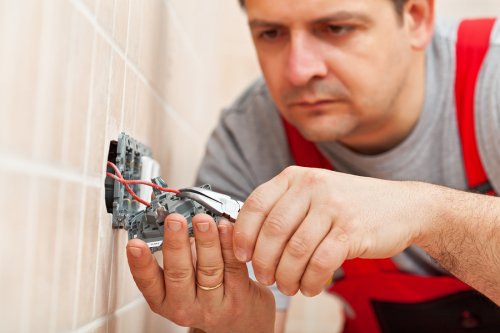
-
Spotlight on Our Commercial Electrical Services
RECENT POSTS
categories
- Uncategorized
- Delta Electric
- Commercial Electrical
- Residential Electrical
- Electric Circuits
- Dedicated Circuits
- Circuit Breakers
- Electrical Panels
- Electrical Wiring
- Safety Inspections
- copper wires
- Electrician San Jose
- Trained Electricians
- Electrical Services San Jose
- Malfunctioning Electrical Outlets
- Circuit Breaker
- Grounding
- safety
- Flickering Lights
- Arc Fault Breakers
- electrical system
- Aluminum Wiring
- Circuit Interrupters
- House Surge Protection
- Zinsco Panel Warnings
- Wiring Conversion
- GFCI outlet
- professional electrician
- Knob-and-Tube Wiring
- modern home electrical system
- Fuses
Archives
2025
2024
2023
2018
2017
- December (4)
- November (4)
- October (5)
- September (4)
- August (4)
- July (4)
- June (4)
- May (4)
- April (4)
- March (3)
- February (4)
- January (3)
2016
- December (3)
- November (4)
- October (4)
- September (4)
- August (4)
- July (4)
- June (4)
- May (4)
- April (4)
- March (4)
- February (4)
- January (4)
2015
- December (4)
- November (4)
- October (4)
- September (4)
- August (3)
- July (4)
- June (4)
- May (3)
- April (4)
- March (4)
- February (2)
2014
- December (3)
- November (4)
- October (4)
- September (6)
- August (2)
- July (3)
- May (2)
- April (1)
- March (2)
- February (1)
- January (1)

